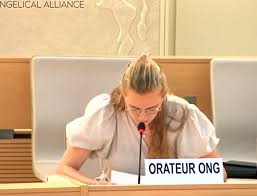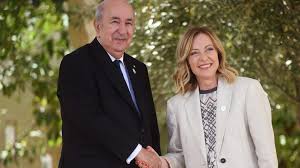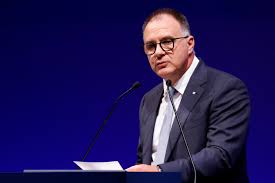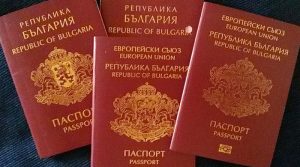Prime Minister urges people to strictly observe precautions against 3rd wave of Covid19
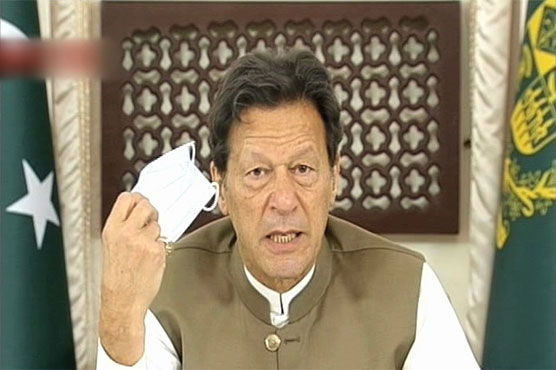
Islamabad: Prime Minister Imran Khan on Sunday urged the nation to strictly observe the SoPs, particularly the wearing of the mask to protect themselves and their families against the deadly third wave of the Covid19 pandemic.
“I urge you all to wear a mask, and I appeal you to follow all the SoPs for your sake and for the sake of Pakistan,” Prime Minister Imran Khan said in an interaction with the people through telephone and was also aired live through news channels.
It was Prime Minister Imran Khan’s first public interaction after recovering from Covid19 and has since been working from his home office.
Khan said it was Allah Almighty’s blessings that He protected us from the first two waves of the deadly wave of Coronavirus. He said despite vaccinating their people, countries in Europe were going in for lockdowns. He mentioned the impact of the third wave in neighbouring countries – India and Bangladesh and said “Putting on a mask is the most important thing in protecting oneself.”
“Put it on whenever you are in an enclosed room with people, in buses, everywhere,” and said the world today recognises it as an important protective measure.
The Prime Minister said Allah had been merciful for the people of Pakistan during the first two waves, and Pakistan escaped the serious negative impact, but now the people have become complacent and no one was worried anymore.
“People are roaming around without any fear. If this spreads more, it would pressurise our hospital systems.”
“We are not going for a lockdown, [but] only implementing restrictions, [but if the situation worsens] else we will be forced to take the next step,” the Prime Minister warned.
He said according to the data the poor were the most affected people in the entire world, and around 150 million people went below the poverty line across the world. The prime minister said it was his wish to protect the poor segments of society at all costs and said he wants them to take safeguards.
“No one can predict how much this third wave will last,” he said and added it was therefore vital that people strictly adhere to the standard operating procedures (SoPs).
Prime Minister Imran Khan said that as corruption had eaten away the economies of poor countries like Pakistan, the society as a cohesive whole should extend full support to make the fight against the menace a success.
Responding to questions by the people during a live broadcast, the prime minister said a nation could fight corruption only through collective efforts.
“Imran Khan cannot fight it alone, the society carries on this fight and the judiciary fights it. The National Accountability Bureau, which is completely independent, can frame cases,” he added.
The prime minister said corruption was the real issue, which had permeated in all the poor countries of the world and had even shaken the economies of rich ones.
He referred to the steps taken by Mahathir Mohamad to lift the Malaysian economy. Imran Khan said the powerful elite embezzled the national wealth by holding on to the powerful offices as happened in Pakistan and then resorted to money laundering as they could not hide such huge amounts in their respective countries.
According to the United Nations watchdog panel report, about 1,000 billion dollars from the poor countries were being laundered to the rich countries or tax havens, he said. The report further said about 7,000 billion dollars had been stashed away in rich countries, he added.
The prime minister said the Government of Pakistan was striving to get the laundered money back.
China had sent 450 ministers to jail on corruption charges and in Singapore, a minister committed suicide after he had been arrested for corruption, he added.
“It is regrettable that in Pakistan, the corrupt elements are warmly welcomed and showered with flower petals.”
Expressing his resolve, Imran Khan said, “Insha’Allah we have to win this fight – a fight for the rule of law, which is vital for the country’s survival.”
He said in the fight, all the corrupt elements had gathered on one platform to pull down Imran Khan’s government because it was not giving them any NRO (National Reconciliation Ordinance).
The prime minister said the real issue was rule of law, which was firmly imposed by Holy Prophet Hazrat Muhammad (Peace Be Upon Him) in the State of Madina.
“We all have to decide together to go after these corrupt elements,” he emphasized.
The prime minister, to a question, replied that the government had retrieved land worth Rs 450 billion from illegal occupants in Punjab alone.
The government, he said, would not spare the powerful mafia, who had encroached upon its own lands and properties. The government has declared war against them.
A Lahore-based clique had the backing of a political party, and even in past, the ministers and members of the parliament had gobbled the government’s precious lands in Punjab, he added.
The mafia, he said, also encroached upon the properties of overseas Pakistanis.
The prime minister said a change could be brought through a consecutive struggle. There were two kinds of changes, i.e., blood revolution and a change through the ballot.
The judiciary was completely independent as well as NAB, which was previously controlled by the then governments, he added.
Citing the Broadsheet Commission report, Imran Khan said Justice (retired) Shaikh Azmat Saeed’s findings had divulged that the corrupt elements were protected in the scandal.
“There is a difference between revolution and evolution, the latter will take time,” he maintained.
The prime minister said his government had so far paid back 35,000 billion rupees in debt, which the previous rulers had left behind.
The prime minister said for the first time, a change was being felt and no one could stop it from happening. The country in the past had only witnessed a two-party system.
“Now all stood on one platform, trying to get rid of Imran Khan’s government. It is a change. The powerful, who always enjoyed the privileged position, are feeling it. My government will not spare anyone,” he added.
Going after such elements, he said, had never been an easy task. Almost all the developing countries had been facing the ordeal. “It is a kind of Jihad we are waging. It’s a Jihad when you protect the feeble segments of your society,” he said.
The prime minister said in Punjab alone, it was detected that a whopping amount of Rs 600 billion was circulated in the accounts of sugar bookies.
He expressed his wonder that his political rivals did not talk about such changes, how the government had stabilized the country, its economy and rupee. “Something is happening as all the economic indicators are positive even in this pandemic,” he added.
The changes, he said, could be felt in the automobile and construction sectors. Such changes would lift the country, even the tourism sector alone would help lift Pakistan economically, he added.
For the first time in the country’s history, the current account had been in surplus for the last seven months, he said.
The prime minister said the first year of his government was a horrible one as the country was facing imminent default.
The prime minister also ruled out normalization of trade ties with India unless it reversed its illegal acts of August 5, 2019, on the Indian Illegally Occupied Jammu and Kashmir (IIOJK) and restore its status.
No normalization could happen with India unless it revoked its illegal steps on the IIOJK, he responded to a question.
“We have fought the Kashmiris’ case at all global fora in a way never happened in the past,” he said.
The prime minister said the import of sugar from India was rejected by the cabinet, which decided that no step would be taken for the normalization of ties with the neighbouring country.
“I give you surety that no normalization of relations with India can take place unless it revokes its illegal steps,” he told a caller from Azad Kashmir.
To another question, Imran Khan said the existing gas reserves in the country were fast depleting and no new ones were discovered in the past while its import was very costly.
The government, he said, had signed a contract to import gas at a low price.
He said there existed a huge supply and demand gap in the gas sector as only 27 per cent of people in Pakistan had access to piped gas whereas the rest had to get it through other sources.
The provision of subsidies on gas meant a further increase in foreign debts, he maintained.
The prime minister regretted that despite being an agricultural country, 70 per cent of pulses were being imported and similar was the case of oil imports.
About the power generation cost, the prime minister said the previous governments had signed costly agreements with the Independent Power Producers (IPPs). An amount of Rs 1,500 billion had to be paid to the IPPs “whether you purchase power or not.” However, renegotiation with the IPPs and Qatar over the purchase of gas was continuing.

